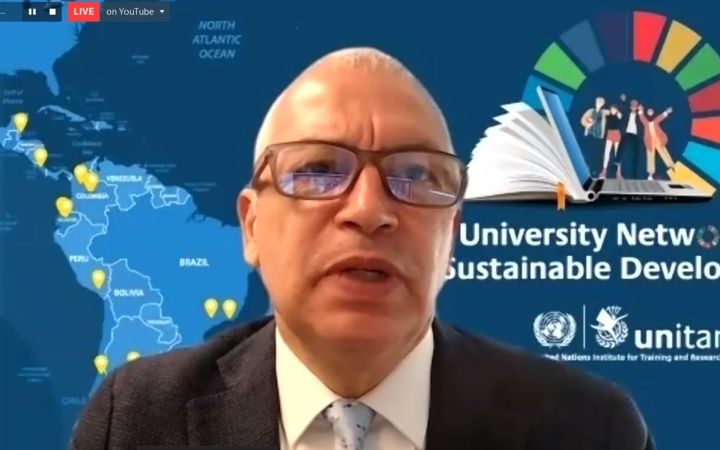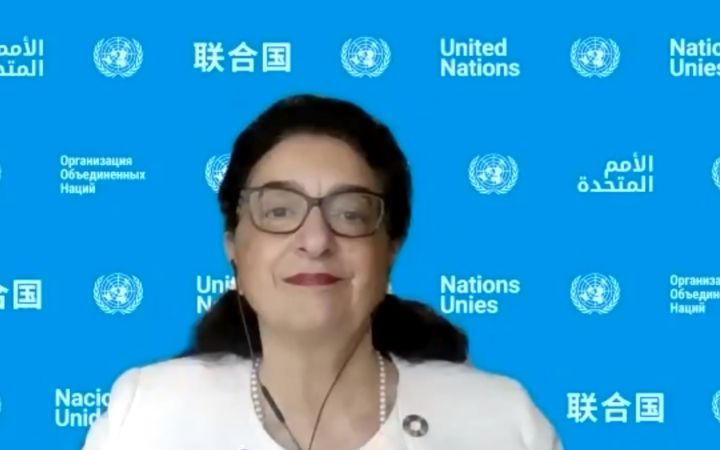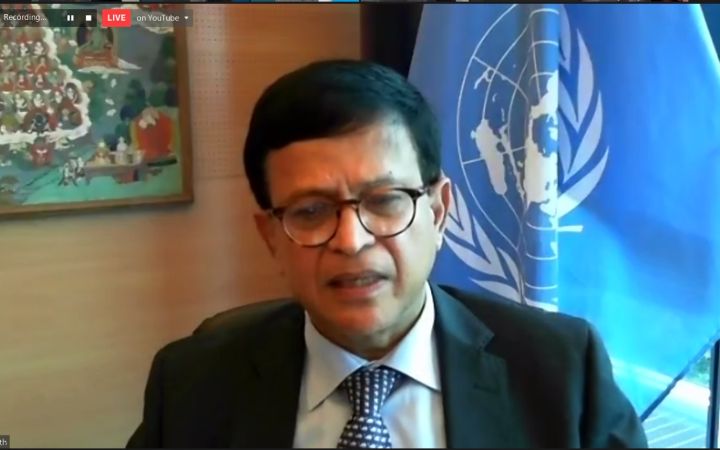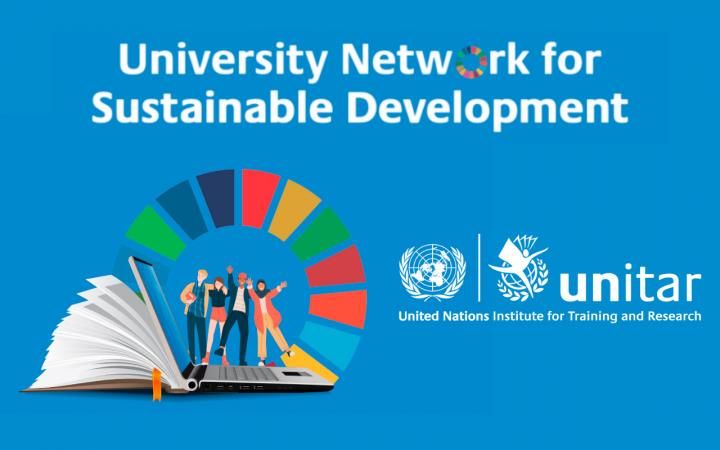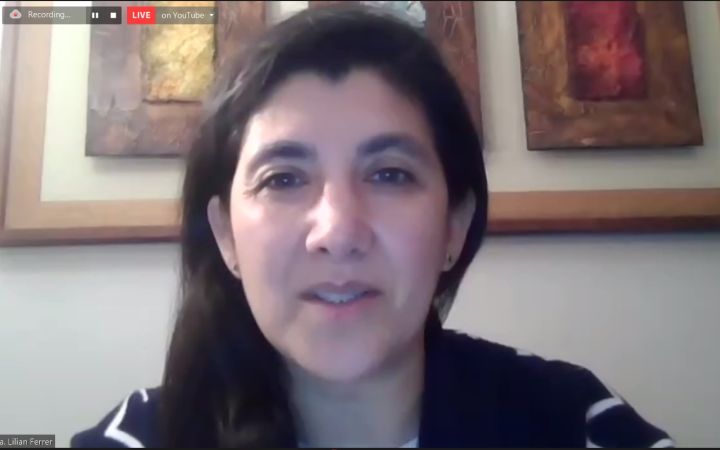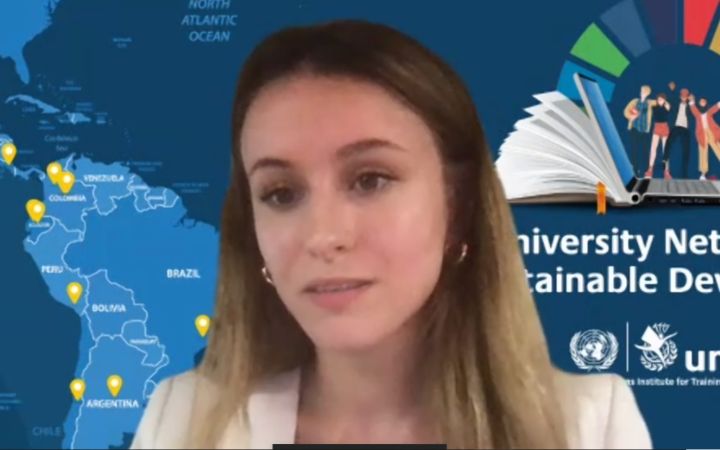06-12 July 2021, New York, USA. The United Nations Institute for Training and Research's (UNITAR) office in New York organized their traditional five-day virtual Event, “SDG Learning, Training & Practice 2021” jointly with the United Nations Department of Economic and Social Affairs which will be held from 06-12 July 2021.
The event was attended by approximately 380 delegates from around the world via virtual platform. Mr. Marco A. Suazo Head of Office, UNITAR New York opened the first session welcoming the panelists and the participants. He elaborated that this opportunity not only puts together academia but also practitioners , UN Agencies and other organizations to share best practices that enhance and implement the 2030 Agenda “the ultimate goal”, which is a landmark for better humanity in earth.
Ms. Maria Francesca Spatolisano, UN Assistant Secretary-General Department of Economic Affairs, thanked UNITAR for the efforts and collaboration to make this event happen. She mentioned that the COVID- 19 pandemic, put the Sustainable Development goals at risk. Ms. Spatolisano stated that since we are seeking to recover and build our society, those efforts should be guided by three strategic priorities; ensuring equitable access to vaccines and treatment, strengthening the financial position of developing countries and finally ensuring the recovery efforts are guided by the 2030 Agenda. She stressed on the importance of investing in education and knowledge since they have been affected by the pandemic.
Moving on, Mr. Suazo introduced Mr. Nikhil Seth, UNITAR Assistant Secretary-General, and Executive Director of UNITAR. Mr. Seth referred to the partnership with UNDESA working together on the sixth edition of the SDG Learning, Training & Practice Center. He talked about the importance of the SDGs and how they inspired people and organizations to find solutions for the problems of our world.
Mr. Seth mentioned that this year’s focus for the HLPF will be ending poverty, ending hunger, ensuring health for all, promoting sustainable growth, reducing inequality, tackling climate change, and promoting peace and justice, which will only be possible achieve if we form partnerships. Mr. Seth introduced the university network that was established during this event and aims to build strong collaboration amongst academia in Latin America and the Caribbean.
Mr. Suazo intervened next and reassured that UNITAR will put its own contribution towards education using the University Network that will feature trainings, workshops and master programmes available for the public. Beneficiaries will be able to join the network as faculty or students. He stated that we must take globalization, culture, language and geographical positions into consideration.
Mr. Suazo then moderated a panel with a group of universities who have joined the network, starting with Professor Antonio Jose de Almeida Meirelles, Rector of the University of Campinas. He mentioned that in The University of Campinas they are incorporating the SDG Goals in everything they do; from their administrative work operations to their academic activities.
Dra. Silvia Restrepo, Vicerrectora de Investigaciones y Creacion of The University of Los Andes, took over after Professor Meirelles. Dra. Restrepo talked about the courses that are already available on Coursera platform. They also have developed local and regional research projects on the SDGs that can serve as reference for partners who work in these intersections.
Professor Clement Sankat, President of The University of Belize, discussed the work of The University of Belize on Sustainable development. Professor Sankat talked about the tremendous potential Belize has which can help achieve the sustainable goals. He mentioned that the first priority for Belize has always been education and that is the reason why The University of Belize focuses on educating teachers to be able to pass it on to others.
Dr. David Smith, Director, Centre for Environmental Management and Coordinator, Institute for Sustainable Development, The University of the West Indies, closed the panel by remarking the importance of a multi- disciplinary and joint approach to understand the linkages and competing agendas to help transform our current agenda and context.
After this panel, Ms. Paula De Blas, UNITAR Consultant, and Ms. Zhengqi Wang, UNITAR Consultant, led a presentation of the University Network for Sustainable Development. They showcased how the network allows universities joining to be informed about other universities’ achievements on SDGs related activities to create partnerships among them, as well as with UNITAR. Both Ms. De Blas and Ms. Wang presented a demo on the technicalities of how to navigate and use the University Network for Sustainable Development.
With the event closed with Mr. Marco A. Suazo, commenting on how much technology has to offer. He stressed that we would like to have equal opportunities for everyone with sharing knowledge using the network. Thanking all the speakers and participants for joining this webinar.
In order to access the University Network you can visit the Networks website or contact paula.deblas@unitar.org


